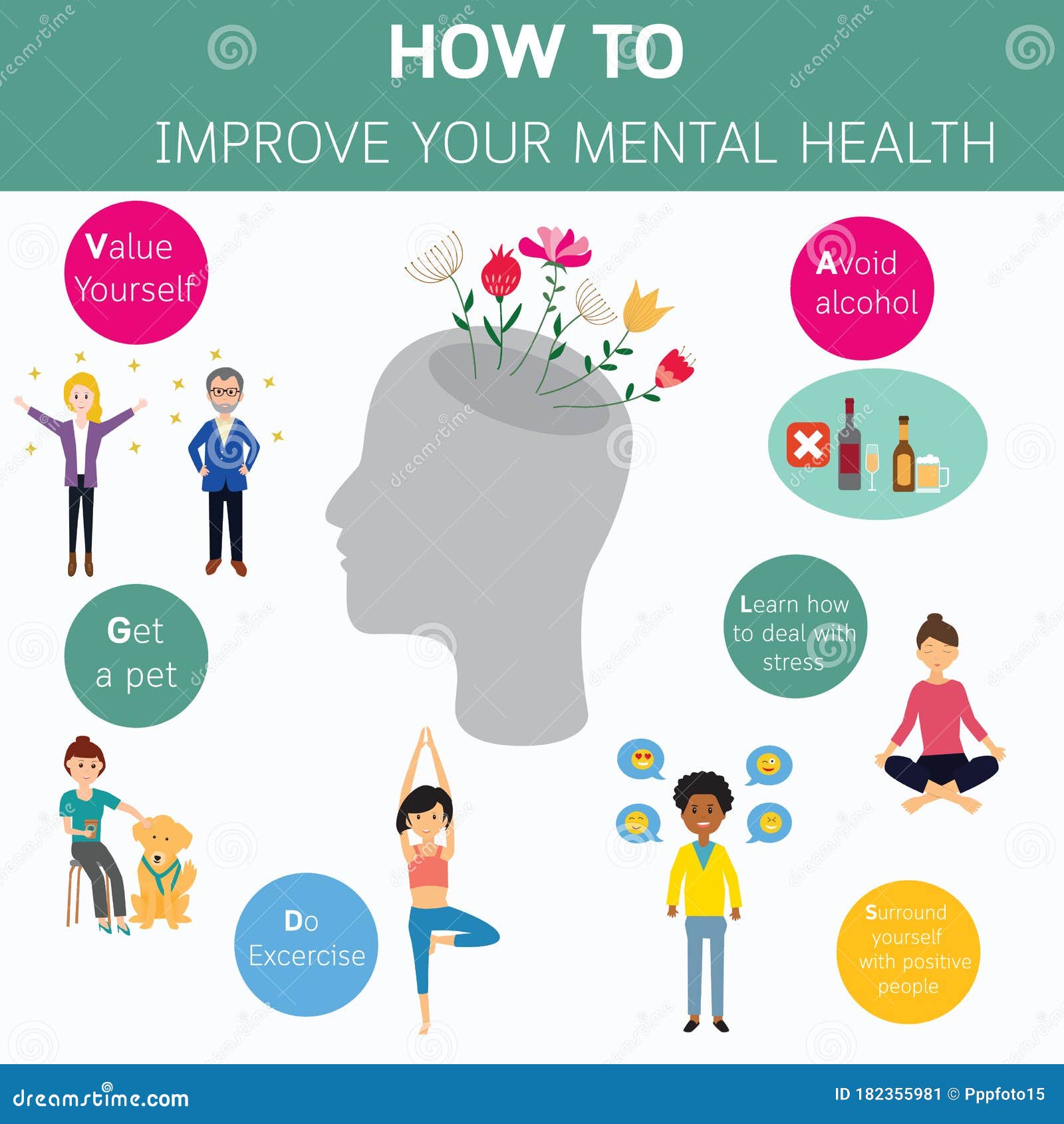Boosting Resilience: Strategies For Better Mental Health

Table of Contents
Understanding Resilience: What It Is and Why It Matters
Defining Resilience
Resilience is the ability to bounce back from adversity, cope with stress, and adapt to change. It's not about avoiding hardship, but about navigating it successfully. Key characteristics of resilient individuals include:
- Optimism: Maintaining a positive outlook even in difficult situations.
- Problem-solving skills: Effectively identifying and addressing challenges.
- Strong social support: Having a network of supportive relationships.
- Self-efficacy: Believing in your ability to overcome obstacles.
- Adaptability: Adjusting to changing circumstances and unexpected events.
The benefits of resilience are significant, leading to:
- Reduced stress levels and improved stress management
- Enhanced coping mechanisms for handling life's difficulties
- Better mental health outcomes, including reduced risk of depression and anxiety
- Increased overall well-being and life satisfaction
The Science Behind Resilience
Resilience isn't just a matter of willpower; it has a neurological and psychological basis. Neurotransmitters like serotonin and dopamine play a crucial role in our stress response and recovery. When we face adversity, resilient individuals tend to regulate these neurotransmitters more effectively, leading to quicker recovery and reduced emotional distress. Positive psychology research emphasizes the importance of cultivating positive emotions, strengths, and meaning in life to build resilience. This proactive approach strengthens our mental defenses against stress.
Practical Strategies for Building Resilience
Cultivating Self-Care Practices
Self-care is the cornerstone of resilience. Prioritizing your physical and mental health provides the foundation you need to weather life's storms. Essential self-care activities include:
- Regular exercise: Physical activity releases endorphins, reducing stress and improving mood. Aim for at least 30 minutes of moderate-intensity exercise most days of the week.
- Healthy diet: Nourishing your body with wholesome foods provides the energy and nutrients needed to cope with stress. Limit processed foods, sugar, and caffeine.
- Sufficient sleep: Aim for 7-9 hours of quality sleep per night to allow your body and mind to rest and repair.
- Mindfulness meditation: Practicing mindfulness helps to calm the mind, reduce anxiety, and improve focus. Even 10-15 minutes a day can make a difference.
- Yoga: Combining physical postures, breathing techniques, and meditation, yoga promotes relaxation and stress reduction.
Building Strong Social Connections
Strong social support is a powerful buffer against stress and adversity. Nurturing your relationships is crucial for boosting resilience. Ways to build and maintain strong connections include:
- Spending quality time with loved ones: Make time for meaningful interactions with family and friends.
- Joining social groups: Connect with people who share your interests.
- Seeking support from friends and family: Don't hesitate to reach out when you need help.
- Volunteering: Helping others can boost your sense of purpose and connection.
Developing Effective Coping Mechanisms
Effective coping mechanisms are essential for managing stress and adversity. Developing a range of strategies allows you to adapt to different situations. These include:
- Problem-solving skills: Learn to identify problems, brainstorm solutions, and take action.
- Stress management techniques: Practice relaxation exercises, deep breathing, and progressive muscle relaxation. [Link to relaxation exercises]
- Emotional regulation strategies: Learn to identify and manage your emotions in healthy ways. [Link to emotional regulation techniques]
Embracing a Growth Mindset
A growth mindset—the belief that abilities can be developed through dedication and hard work—is crucial for resilience. It allows you to view challenges as opportunities for learning and growth. Strategies for developing a growth mindset include:
- Focusing on effort rather than outcome: Celebrate your effort and persistence, regardless of the result.
- Embracing challenges: View challenges as opportunities to learn and grow.
- Learning from mistakes: See mistakes as valuable learning experiences.
Seeking Professional Help When Needed
Seeking professional help is a sign of strength, not weakness. If you're struggling to cope, don't hesitate to reach out to a mental health professional. Signs that indicate a need for professional help include:
- Persistent feelings of sadness, anxiety, or hopelessness.
- Difficulty functioning in daily life.
- Thoughts of self-harm or suicide. [Link to mental health resources]
Conclusion
Boosting resilience involves a multifaceted approach encompassing self-care, strong social connections, effective coping mechanisms, a growth mindset, and seeking professional help when needed. By prioritizing these strategies, you can enhance your mental well-being and navigate life's challenges with greater strength and confidence. Remember, boosting resilience is an ongoing journey, not a destination. Start building your resilience today! Implement these strategies to enhance your mental well-being and navigate life's challenges with greater strength and confidence.

Featured Posts
-
 Improved Wireless Headphones A Review Of The Best Models
May 21, 2025
Improved Wireless Headphones A Review Of The Best Models
May 21, 2025 -
 T Mobile Hit With 16 Million Fine For Repeated Data Breaches
May 21, 2025
T Mobile Hit With 16 Million Fine For Repeated Data Breaches
May 21, 2025 -
 Nice Unveils Plans For A New Olympic Sized Swimming Pool Complex
May 21, 2025
Nice Unveils Plans For A New Olympic Sized Swimming Pool Complex
May 21, 2025 -
 Sydney Sweeney Glumi U Filmu Snimljenom Po Reddit Prici
May 21, 2025
Sydney Sweeney Glumi U Filmu Snimljenom Po Reddit Prici
May 21, 2025 -
 Juergen Klopp Nereye Gidecek Son Dakika Transfer Haberleri
May 21, 2025
Juergen Klopp Nereye Gidecek Son Dakika Transfer Haberleri
May 21, 2025
Latest Posts
-
 Updated The Race To Break The Trans Australia Run Record
May 22, 2025
Updated The Race To Break The Trans Australia Run Record
May 22, 2025 -
 American Couple Arrested Following Bbc Antiques Roadshow Episode
May 22, 2025
American Couple Arrested Following Bbc Antiques Roadshow Episode
May 22, 2025 -
 Antiques Roadshow Leads To Arrest American Couple Detained In Britain
May 22, 2025
Antiques Roadshow Leads To Arrest American Couple Detained In Britain
May 22, 2025 -
 Bbc Antiques Roadshow American Couple Arrested In Uk After Episode Appearance
May 22, 2025
Bbc Antiques Roadshow American Couple Arrested In Uk After Episode Appearance
May 22, 2025 -
 Eenvoudig Betalen In Nederland De Tikkie Oplossing
May 22, 2025
Eenvoudig Betalen In Nederland De Tikkie Oplossing
May 22, 2025
